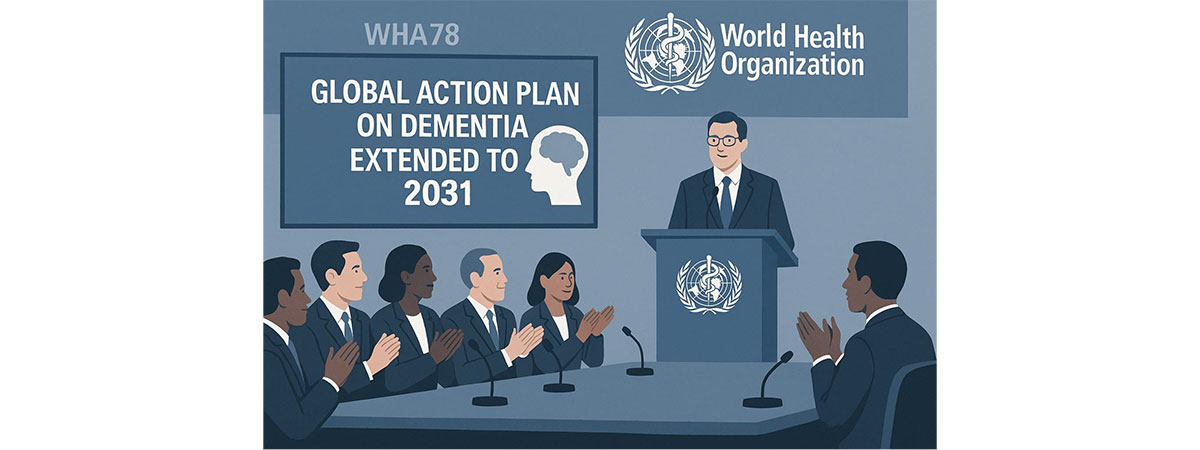WPA Welcomes Extension of Global Action Plan on Dementia to 2031
The WPA applauds the decision by Member States at the Seventy-eighth World Health Assembly 2025 to extend the Global Action Plan on the Public Health Response to Dementia from 2025 to 2031. This decision aligns the timeline with the Global Action Plan on Epilepsy and Other Neurological Disorders 2022–2031, creating a more integrated and coherent response to neurological conditions worldwide.
Key Highlights from the Decision:
• Countries recognized the need for continued momentum in addressing dementia, one of the leading causes of disability and dependence among older people
• Dementia is currently the seventh leading cause of death globally, with 57 million people living with the condition in 2021, more than 60% of whom live in low- and middle-income countries
• Approximately 10 million new cases are diagnosed each year, with Alzheimer’s disease accounting for the majority
• The extended plan gives countries time to accelerate national responses, invest in care and support systems, and integrate dementia into broader health and ageing agendas
WPA’s Perspective:
• The extension reflects the urgent need to strengthen public health responses to dementia and to reduce the stigma and discrimination often faced by patients and caregivers
• Dementia is not just a medical condition but a complex public health and social challenge that requires multisectoral action, community engagement, and meaningful patient participation
• Addressing dementia through a rights-based, people-centred approach will ensure patients and families receive the support they need, including timely diagnosis, quality care, and integrated services
The Resolution Calls on Member States To:
• Integrate dementia into national health plans and ensure multisectoral action for prevention, diagnosis, treatment, and support
• Invest in community-based care, health worker training, and social protection systems to reduce the burden on patients and families
• Strengthen data collection and research to better understand the burden of dementia and track progress toward targets
WHO’s Role:
• Provide technical assistance and guidance to countries to implement the extended action plan
• Support countries in aligning dementia strategies with broader neurological health policies
• Promote best practices and knowledge sharing among Member States
WPA Calls For:
• Governments to prioritize dementia in national health agendas and allocate adequate resources for prevention, diagnosis, care, and research
• Collaborative efforts between governments, health systems, patient organizations, and communities to create inclusive and supportive environments for people living with dementia and their families
• Active involvement of patients and caregivers in shaping policies and programmes that affect their lives
WPA Stands Ready:
• To work with WHO, Member States, and other stakeholders to accelerate progress towards the goals of the Global Action Plan on Dementia
• To champion the rights, dignity, and well-being of all people affected by dementia through patient-led advocacy and capacity-building initiatives
The WPA celebrates this important step towards ensuring that no patient living with dementia is left behind.


